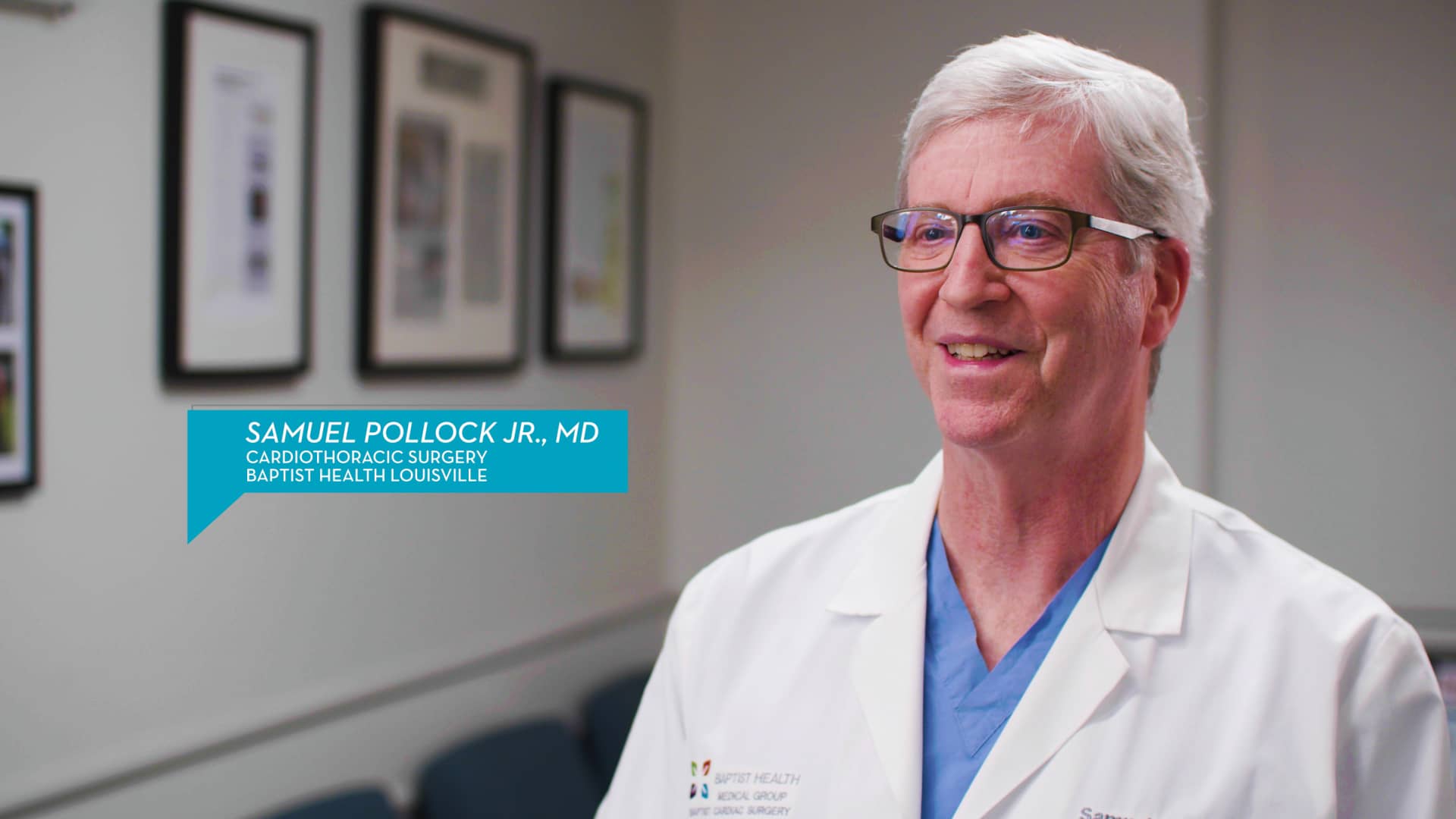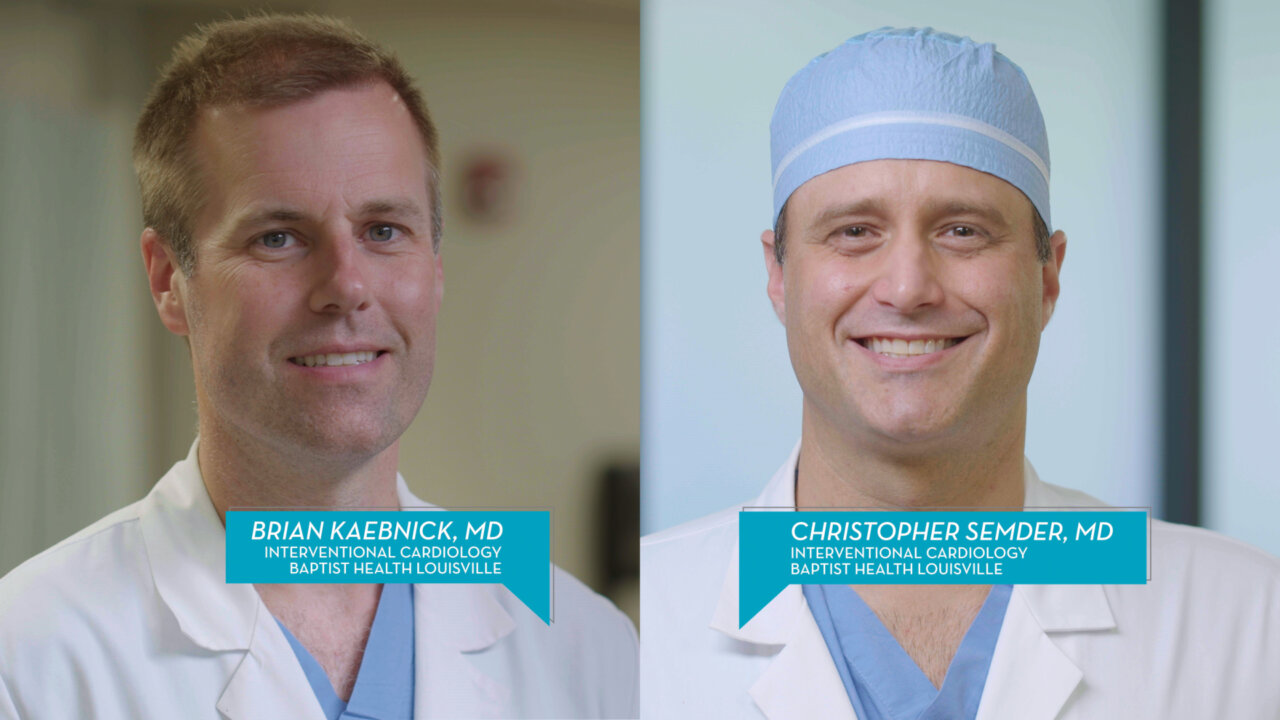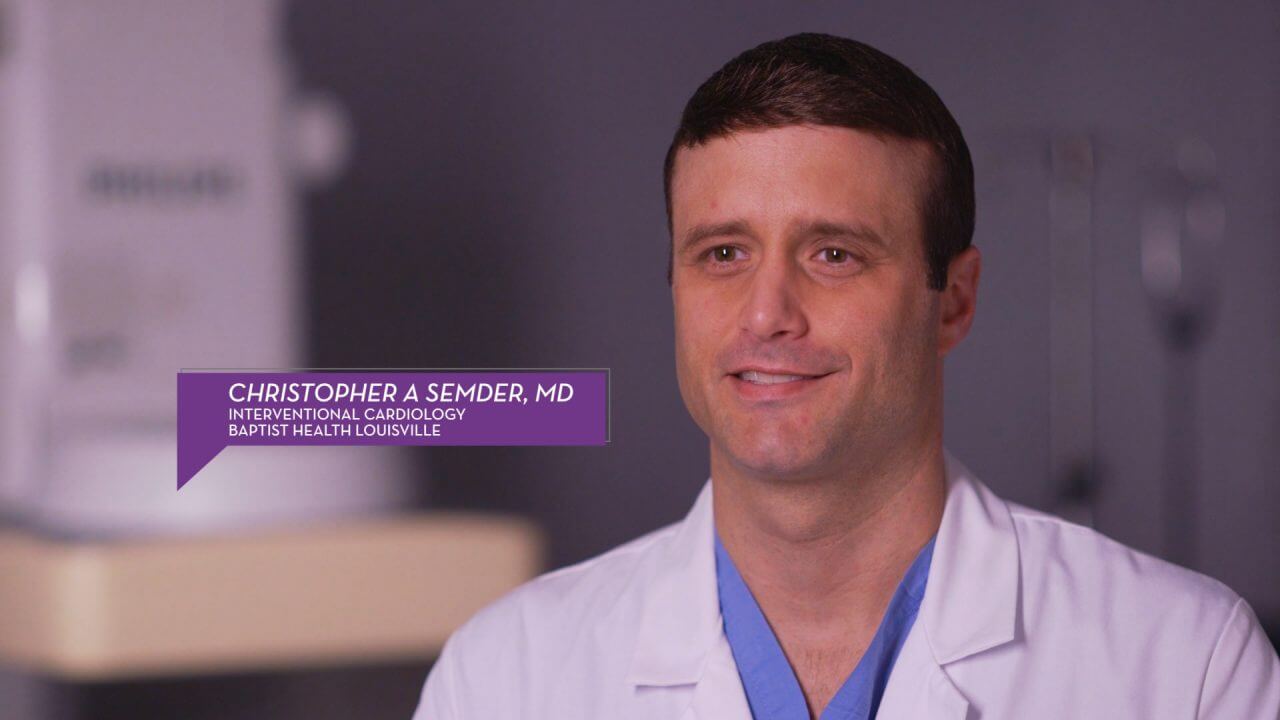Repairing Aortic Aneurysm with Less Invasive Operations in Louisville
Baptist Health Louisville: Repairing Aortic Aneurysm with Less Invasive Operations
Baptist Health surgeons perform endovascular aneurysm repair through the groin using CT scans and images. Learn about the techniques specialists use during aneurysm operations, such as the repair of abdominal aortic aneurysms.
Repairing Aortic Aneurysm with Less Invasive Operations in Louisville HealthTalks Transcript
Brad Thomas, MD, Vascular Surgery:
An aneurysm is a weakness in an artery anywhere in the body. The ones I typically deal with are in the aorta. It can be caused from diseases that damage the artery, and just like in a balloon as it gets bigger and bigger and bigger, the wall of that can get thinner and it can increase the risk of rupture. That’s why we address and fix these in patients.
The overwhelming majority of the time now we use endovascular methods, because it’s so much less invasive and so much better tolerated by patients. We make small incisions in the groin and then deliver stent grafts or stents covered in material to reinforce the walls of the aneurysm and reduce the risk of rupture.
What CT fusion does is allow us to use CAT scans that were done before the patient’s procedure and then fuse those with the images that we take in the operating room so that we can create 3D models of the patient’s anatomy. These 3D models move with us in the operating room and allow us to more accurately see things. Then we can also do CAT scans in the room to make sure that we’ve done everything we need to do to the best of our ability to reduce long-term problems or complications.
Baptist has really been doing these types of procedures since the ’90s. This is our third iteration of a hybrid operating room. This isn’t the first or second time we’ve done it. They’ve really continued to invest in that to allow us to offer these to patients.



